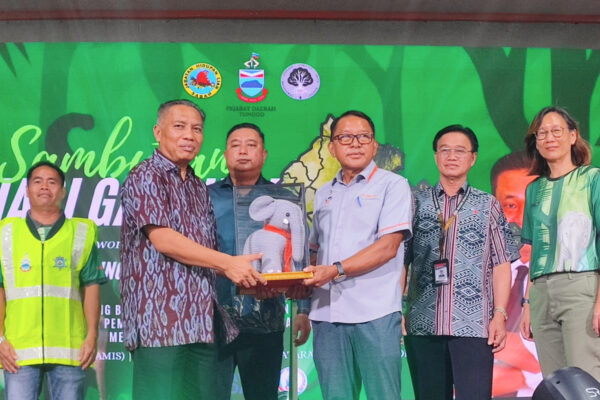Mr Wanchai Prommak is a 50-year-old rubber tapper living with his wife and four young children in Thailand who has been affected by the falling price of rubber. It was once his only source of income. Not any more. Our Rurality project in Thailand is supporting rubber farmers to adopt additional on-farm livelihood activities to improve the stability of household income, making them less reliant on a single crop.
We identify viable opportunities for farmers that fit their production system – tapping is done every day during the early morning and available time to other activities can be limited. Rurality is exploring additional options including the intercropping of vegetables, aquaculture, poultry and soap making, but in Mr Wanchai’s case the project has supported the development of a quail enterprise to sell eggs and chicks. He is one of 147 farmers in Thailand we have supported to diversify their income since the project began.
He was able to set up this new quail egg enterprise through the training and mentoring we provided over the past year. This now brings in an average of USD $7 per day from egg sales. With the market demand for quail eggs increasing Mr Wanchai is becoming more confident his new enterprise will continue to grow. The additional benefit for him is that quail manure is also a rich source of organic fertiliser that can be used to improve the quality of soil on his rubber plantation.
Mr Wanchai Prommak is one of 147 farmers in Thailand we have supported to diversify their income since Rurality began.
Circumstances differ from farmer to farmer, which is why we are providing both group and individual training to ensure targeted support. As farmers begin to invest in their enterprise, individual training is important to support farmers in getting it off the ground. This includes working with them to keep a record of their activities, which can later be analysed to determine their profitability.
The current market price for rubber means that enterprise diversification is not only supporting farmers to maintain their standard of living, but is also helping to keep rubber trees in the ground. With the low prices, many farmers are interested in converting their plantations to other crops, such as palm oil or durian.
Our work is therefore reducing the conversion pressure on plantations and Mr Wanchai’s experience demonstrates that diversification can reduce the economic dependence of Thai farmers on rubber. Rurality hopes to take these outcomes to scale, improving the resilience of farmers across the entire supply shed, and across supply chains.


